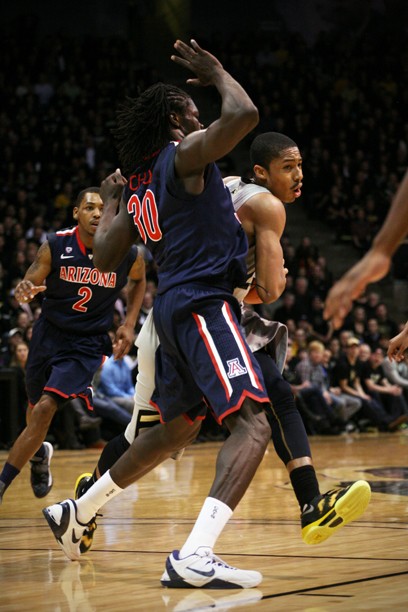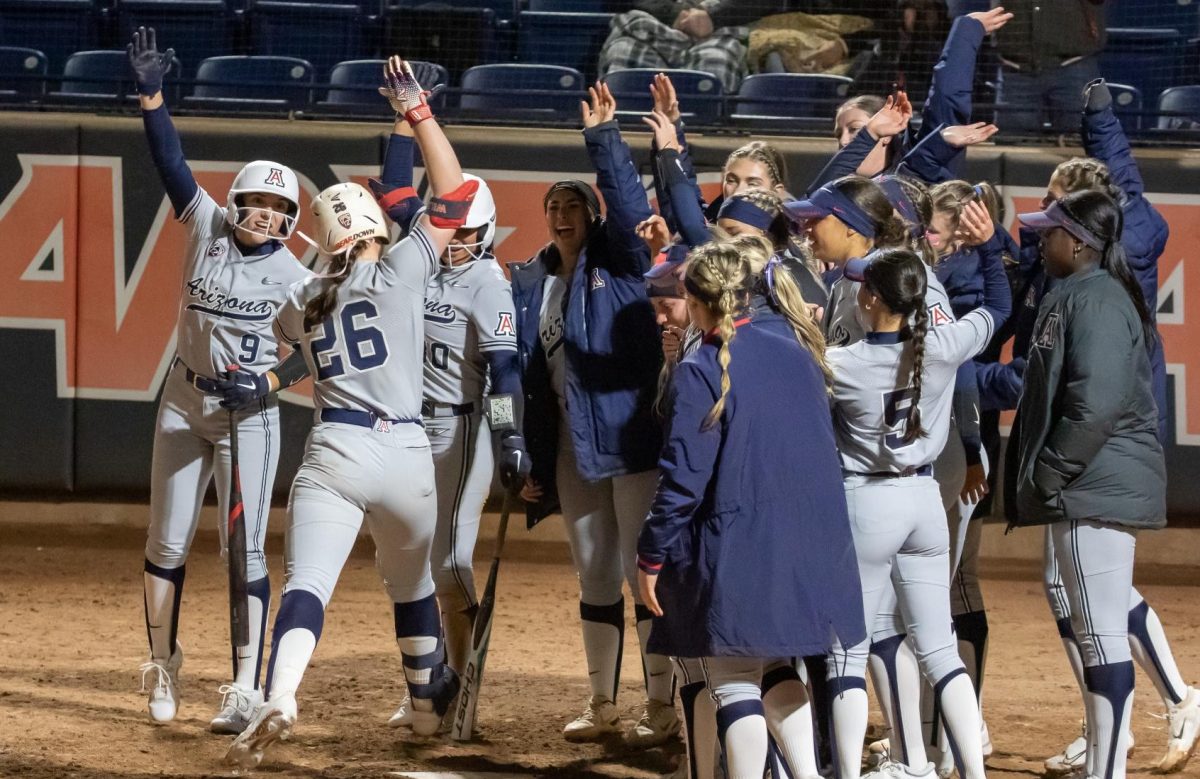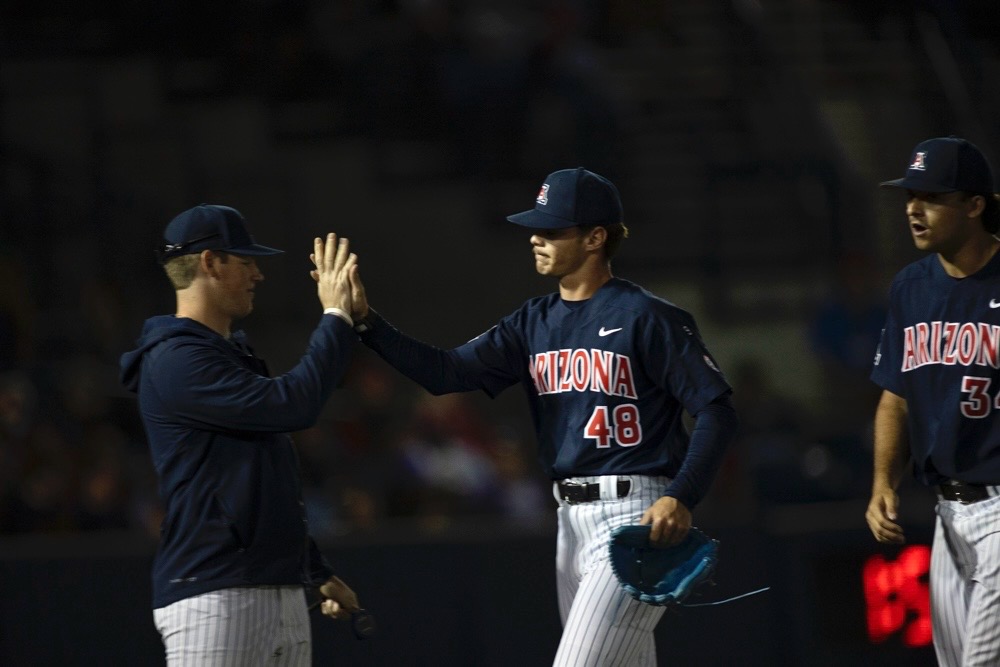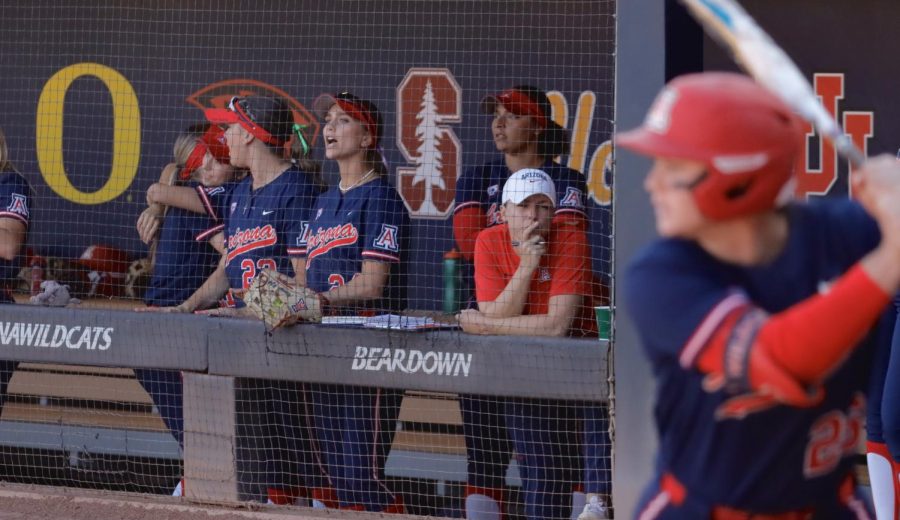Well, that one hurt.
Arizona (20-4, 8-4 Pac-12) lost to Colorado (17-7, 7-5 Pac-12) in Boulder, Colo., 71-58 last night, by far the Wildcats’ most lopsided loss of the season. With a win, the Wildcats would have had a chance to retain at least a tie for first place in the conference, but the loss, coupled with Oregon’s win Wednesday night, means that Arizona solidified a second-place tie with UCLA.
But don’t forget, the Bruins hold the tiebreaker at this point because of Arizona’s 76-67 loss to UCLA on Jan. 19.
While we’re on the subject of losses, what happened to the fire that this team played with while mounting a 14-0 record heading into the first part of the Pac-12 season?
Where is the offensive firepower that allowed the Wildcats to score at least 80 points in eight contests this season?
Against Colorado, the offense sputtered all night, as only two Wildcats scored in double digits.
Leading the way was senior forward Solomon Hill, who scored 12 points on 5-of-14 shooting, and had to heat up to get that many. Before he hit four shots in a row over the final minutes of the game, Hill was only 1-of-9.
Nick Johnson continued to struggle offensively, as he has four games in a row now, scoring nine points on three made field goals.
Defensively, the Buffaloes ripped and roared up and down the court, seemingly nailing everything. In reality, CU made exactly 50 percent of its shots. Thursday night’s game marked the second game this week in which the Wildcats have given up at least 50 percent shooting from the field.
Last night also marked the first pair of back-to-back losses since the season-ending losses to Colorado in the Pac-12 tournament and to Bucknell in the NIT a season ago.
In fact, the Wildcats have been so good coming off of losses that they’ve beaten the following team on their schedule by double digits.
But the 2011-12 team had excuses.
It lacked the size and the depth to make a serious run at the conference frontrunners or teams with a center with any level of athleticism.
This year’s squad has depth, as nine players saw action against Colorado, four of them taller than 6-foot-7.
What Thursday night’s loss highlighted most was that Arizona is a lot like the Denver Nuggets of the Pac-12, with complementary pieces and talented individual players — but Arizona does not have one guy that can take the game over when it matters and raise this team to the next level.
Sure, you can argue for Hill, Johnson or Mark Lyons.
Hill made six 3-pointers in the first half against Washington State but failed to score in the second half. Johnson may be Arizona’s most talented and athletic player; maybe if he wasn’t so exhausted from guarding the other team’s best perimeter player every game (no matter the height), he would have a little juice left over on the offensive side of the ball.
Johnson’s matchup tonight, Spencer Dinwiddie, scored 21 points on nine shots and nine free throws. Cal’s Allen Crabbe scored 31 points on 80 percent (12-of-15 shooting) Sunday. Finally, against UCLA, freshman Shabazz Muhammad scored 23 points on Johnson.
Anyone else seeing a pattern?
The case for Lyons is stronger, as he nailed a layup that sealed a win over Florida for the Wildcats, but his tendency to drive to the basket with a defender draped all over him is troubling to say the least. Lyons dished out four assists and only committed one turnover Thursday night, but that may be a byproduct of early foul trouble Thursday night.
Arizona, which seemed like a strong favorite to regain the conference at this time last week, has turned into an inconsistent team looking for an identity. The 3-pointers aren’t falling the same way as they did early in the season. The freshman bigs are starting to show the wear of their first conference season, and the Wildcats need a leader to have a serious shot at postseason glory.
–Cameron Moon is the sports editor. He can be reached at sports@wildcat.arizona.edu or on Twitter, via @MoonCameron20.









